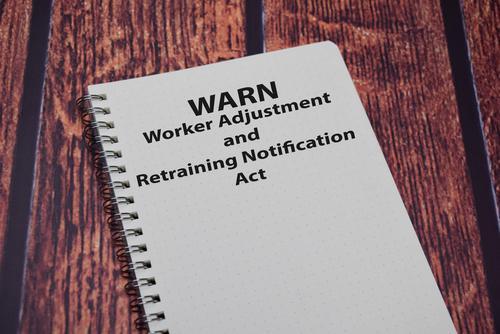
 847-995-1205
847-995-1205
Recent Blog Posts
Are Undocumented Immigrants Entitled to Workers' Compensation
 There has been much talk lately about immigration reform and the impact it would have on the American employment market. Some fear that mass legalization would saturate the market and exert downward pressure on wages. Others fear that without a legalization plan, the U.S. is alienating precious knowledge workers that are part of the immigrant population. Another group argues that the current system does not collect income tax from undocumented workers, yet it allows them to obtain benefits that are funded with taxpayer money.
For example, assume someone is injured on the job. Normally, they would be entitled to Workers' Compensation payments under the Illinois Workers' Compensation Act. If the injury is grave enough, they would be entitled to permanent total disability. These disability payments come from taxes that the state collects from the tax-paying public and employer contribution. Are then undocumented workers, who are largely exempt from taxation, be entitled to file a claim when they are injured on the job? The answer is ‘Yes'!
An Illinois appellate court held that undocumented aliens are covered. The court agreed with the claimant that the Illinois Workers' Compensation Act imposed liability on employers for injuries arising in the course of employment and that liability applied to alien workers as well. The employer argued that the word ‘alien' in the Illinois Worker's Compensation Act applied to aliens who were legally working in the U.S. The court disagreed. It reasoned that if the legislature had wanted to exclude undocumented aliens form the Act's jurisdiction, it would have defined the term ‘alien' to mean only citizens of another country who were legally authorized to work in the U.S.
Employees have certain rights and protections independently of their immigration status. If you have questions about your rights as an employee, please contact an experienced Illinois employment law attorney.
There has been much talk lately about immigration reform and the impact it would have on the American employment market. Some fear that mass legalization would saturate the market and exert downward pressure on wages. Others fear that without a legalization plan, the U.S. is alienating precious knowledge workers that are part of the immigrant population. Another group argues that the current system does not collect income tax from undocumented workers, yet it allows them to obtain benefits that are funded with taxpayer money.
For example, assume someone is injured on the job. Normally, they would be entitled to Workers' Compensation payments under the Illinois Workers' Compensation Act. If the injury is grave enough, they would be entitled to permanent total disability. These disability payments come from taxes that the state collects from the tax-paying public and employer contribution. Are then undocumented workers, who are largely exempt from taxation, be entitled to file a claim when they are injured on the job? The answer is ‘Yes'!
An Illinois appellate court held that undocumented aliens are covered. The court agreed with the claimant that the Illinois Workers' Compensation Act imposed liability on employers for injuries arising in the course of employment and that liability applied to alien workers as well. The employer argued that the word ‘alien' in the Illinois Worker's Compensation Act applied to aliens who were legally working in the U.S. The court disagreed. It reasoned that if the legislature had wanted to exclude undocumented aliens form the Act's jurisdiction, it would have defined the term ‘alien' to mean only citizens of another country who were legally authorized to work in the U.S.
Employees have certain rights and protections independently of their immigration status. If you have questions about your rights as an employee, please contact an experienced Illinois employment law attorney.
Image courtesy of renjith krishnan /freedigitalphotos.net
Burden of Proof: What It Means For You
If an employee brings forth a charge against their employer, the burden of proof is on the employer to show that they did not violate the Fair Labor Standards Act. The the Fair Labor Standards Act, which sets the guidelines for record keeping, child labor standards, overtime pay, and minimum wages for employees.
 Employees must demonstrate that the FLSA applies to their case when filing a suit against you. Since this is a complex law, having an Illinois employment law attorney on retainer can reduce your headaches and help you understand your responsibilities more clearly. The employee must be able to prove that there was an employer-employee relationship as articulated under the FLSA. Independent contractors, personal staff, and volunteers are not included in this official classification. There are also additional exemptions under the law including agricultural laborers, white-collar employees, and seasonal recreation or amusement employees.
Employees must demonstrate that the FLSA applies to their case when filing a suit against you. Since this is a complex law, having an Illinois employment law attorney on retainer can reduce your headaches and help you understand your responsibilities more clearly. The employee must be able to prove that there was an employer-employee relationship as articulated under the FLSA. Independent contractors, personal staff, and volunteers are not included in this official classification. There are also additional exemptions under the law including agricultural laborers, white-collar employees, and seasonal recreation or amusement employees.
Teenage Employees—What You Need to Know
 With summer just around the corner and schools about to let out for the hot months, many teenagers are seeking employment. Hiring a teenager doesn't necessarily mean cheaper or easier labor, however, and there are several things both employers and potential employees should know about hiring underage workers. The United States has some of the most advanced and stringent child labor laws in the world, and there are several provisions of these laws to ensure the safety and comfort of kids who decide to work. “Generally speaking,” according to the Department of Labor, “the Fair Labor Standards Act sets the minimum age for employment (14 years for non-agricultural jobs), restricts the hours youth under the age of 16 may work, and prohibits youth under the age of 18 from being employed in hazardous occupations.”
With summer just around the corner and schools about to let out for the hot months, many teenagers are seeking employment. Hiring a teenager doesn't necessarily mean cheaper or easier labor, however, and there are several things both employers and potential employees should know about hiring underage workers. The United States has some of the most advanced and stringent child labor laws in the world, and there are several provisions of these laws to ensure the safety and comfort of kids who decide to work. “Generally speaking,” according to the Department of Labor, “the Fair Labor Standards Act sets the minimum age for employment (14 years for non-agricultural jobs), restricts the hours youth under the age of 16 may work, and prohibits youth under the age of 18 from being employed in hazardous occupations.”
The Differences between an Employee and Independent Contractor
If you are an employer, you have to define the role that each person plays in your organization. Part of this definition is determining whether those on your payroll are defined an employees or independent contractors. There are several differences between the two as outlined below.
The most important difference is the right of control. If you control the way that a job is done, or if you provide the tools that are used to complete the job, then the worker is considered an employee. If you have no control over the way that a job is done except for the results of the job, and the worker uses his own tools or materials, then the worker is considered an independent contractor.
Another factor that determines the designation of the worker is the way that the worker is paid. If the worker were paid per job that he does for you instead of by the hour or if he is paid per project without guarantee of future work, he would be classified as an independent contractor.
Son of Drew Peterson Loses Wrongful Termination Appeal
 The Chicago Tribune is reporting that a DuPage County judge has issued a ruling upholding the decision of the Oak Brook police and fire commission to terminate Stephen Peterson's employment in 2011. The 33-year-old son of convicted killer Drew Peterson allegedly withheld information, testified in a contradictory manner, and otherwise exercised poor judgment following the 2007 disappearance of his father's fourth wife. Village officials also alleged that Peterson's son removed at least three firearms from Peterson's residence so that they would not be seized by authorities during a search. Peterson's son appealed his termination from the Oak Brook Police Department to the DuPage County court, and is likely to file a further appeal, which must be filed within 30 days of the judge's written decision.
The Chicago Tribune is reporting that a DuPage County judge has issued a ruling upholding the decision of the Oak Brook police and fire commission to terminate Stephen Peterson's employment in 2011. The 33-year-old son of convicted killer Drew Peterson allegedly withheld information, testified in a contradictory manner, and otherwise exercised poor judgment following the 2007 disappearance of his father's fourth wife. Village officials also alleged that Peterson's son removed at least three firearms from Peterson's residence so that they would not be seized by authorities during a search. Peterson's son appealed his termination from the Oak Brook Police Department to the DuPage County court, and is likely to file a further appeal, which must be filed within 30 days of the judge's written decision.
The WARN Act Basics
 In the wake of the 2008 economic recession, employers across the state of Illinois were forced to layoff thousands of workers, leaving many Illinois families without steady income and without prospects. At the end of 2011 alone, more than 1,100 workers at 10 companies lost their jobs, according to the Chicago Tribune—including massive cuts at Sun-Times Media, which cut 456 jobs in the Chicago area at the end of that year. Prospects weren't much better at the beginning of 2012, when three major Illinois employers announced they'd layoff 260 employees, according to a different Tribune article.
In the wake of the 2008 economic recession, employers across the state of Illinois were forced to layoff thousands of workers, leaving many Illinois families without steady income and without prospects. At the end of 2011 alone, more than 1,100 workers at 10 companies lost their jobs, according to the Chicago Tribune—including massive cuts at Sun-Times Media, which cut 456 jobs in the Chicago area at the end of that year. Prospects weren't much better at the beginning of 2012, when three major Illinois employers announced they'd layoff 260 employees, according to a different Tribune article.
Former Employees Suing Wrigley Rooftop for Unpaid Wages
Wrigley Field is the only ballpark in North America where the rooftops provide a view of the game. While the relationship is tenuous, these rooftops can charge anywhere from $75 to $350 for admission to watch Cubs' games. This money should be going to the workers at these establishments, but it allegedly has not been.
On March 19th, three former workers of the Sheffield Baseball Club have decided to sue for unpaid overtime and also unpaid tips. Daniel Garcia, Pedro Castro and Rik Leja all worked as busboys at this establishment. It is alleged in their lawsuit that an average night game would bring in nearly $120 per person in tips.
The payment for working overtime is also a concern for these former employees. The Cubs have week-long home stands that would require workers to sometimes work all seven days for 60 hours. Then workers would typically have a week off of work while the Cubs are on the road. Instead of paying time and a half for overtime, the Sheffield Baseball Club would pay 40 hours on one week and 20 hours on the next. Since the schedules are public records, there is no issue with reviewing pay stubs to verify any improper wages.
Illinois gay rights group critiques President Obama's State of the Union Address
 According to an article posted by ChicagoPride, an Illinois gay rights group has had some issues with President Obama's State of the Union address, and, in particularly, the Employment Non-Discrimination Act.
According to an article posted by ChicagoPride, an Illinois gay rights group has had some issues with President Obama's State of the Union address, and, in particularly, the Employment Non-Discrimination Act.
On February 12th, President Barack Obama delivered his State of the Union address and made reference to providing equal benefits for gay and lesbian service members and their families. While it is true that this is an important issue, there are many other issues facing LGBT Americans. These issues include the passing of the Employment Non-Discrimination Act (ENDA), advancing comprehensive immigration reform that includes same-gender couples, and striking down the Defense of Marriage Act (DOMA).
Executive Director of The Civil Rights Agenda, the largest Illinois LGBT civil rights advocacy organization, leader Anthony Martinez, “many LGBT leaders and community members had hoped that the President would choose this moment to aid in advancing important policy issues affecting LGBT Americans.”
How to Determine Eligibility to Receive Overtime In Illinois
Knowing whether or not you're eligible to receive overtime has long been an important issue for employees and employers alike. Businesses commonly label positions as exempt from receiving overtime, when the work that's being performed in that position should be, by law, non-exempt. According to the Illinois Department of Labor, “when determining whether an exempt or non-exempt from receiving overtime, an employer in Illinois needs to review their employee's classification against both the federal Fair Labor Standards Act (FLAS) and the Illinois Minimum Wage Law.” There are several incidences in which employers don't always take the initiative, and so it's good for employers to review these laws as well.
According to the Minimum Wage Law, workers 18 and over must paid a minimum of $8.25 per hour; workers under 19 may be paid $.50 per hour less than the adult minimum wage. Most minimum wage jobs are non-exempt for workers 18 and over, which often gets overlooked. Although the nitty-gritty of state regulations differ, according to the University of California a non-exempt job is such:
Minimum Wages Raised in Ten States
 Ten states raised their minimum wages by 10 to 35 cents per hour in January, according to a recent article in the Chicago Tribune. Minimum wages were increased in Arizona, Colorado, Florida, Missouri, Montana, Ohio, Oregon, Rhode Island, Vermont and Washington. The increase will boost the incomes of almost 1 million low-paid employees by $190 to $510 per year, a study shows.
Ten states raised their minimum wages by 10 to 35 cents per hour in January, according to a recent article in the Chicago Tribune. Minimum wages were increased in Arizona, Colorado, Florida, Missouri, Montana, Ohio, Oregon, Rhode Island, Vermont and Washington. The increase will boost the incomes of almost 1 million low-paid employees by $190 to $510 per year, a study shows.
The minimum wages were raised in accordance with state laws requiring yearly adjustments to keep pace with inflation. "For a low-wage worker, these increases are a vital protection against rising costs. In states without indexing, inflation slowly erodes the value of minimum wage workers' pay," said David Cooper, an analyst with the nonpartisan Economic Policy Institute.
The increases ranged from 10 to 35 cents an hour. For example, Rhode Island increased its minimum wage by 35 cents, setting the new minimum wage at $7.75. About 855,000 low-paid workers will receive direct pay increases as the new rates are higher than their previous pay. Another 140,000 employees will receive an indirect raise as pay scales are adjusted to reflect the new minimum wage.
Contact Us


Schaumburg, IL 60173
Phone: 847-995-1205
